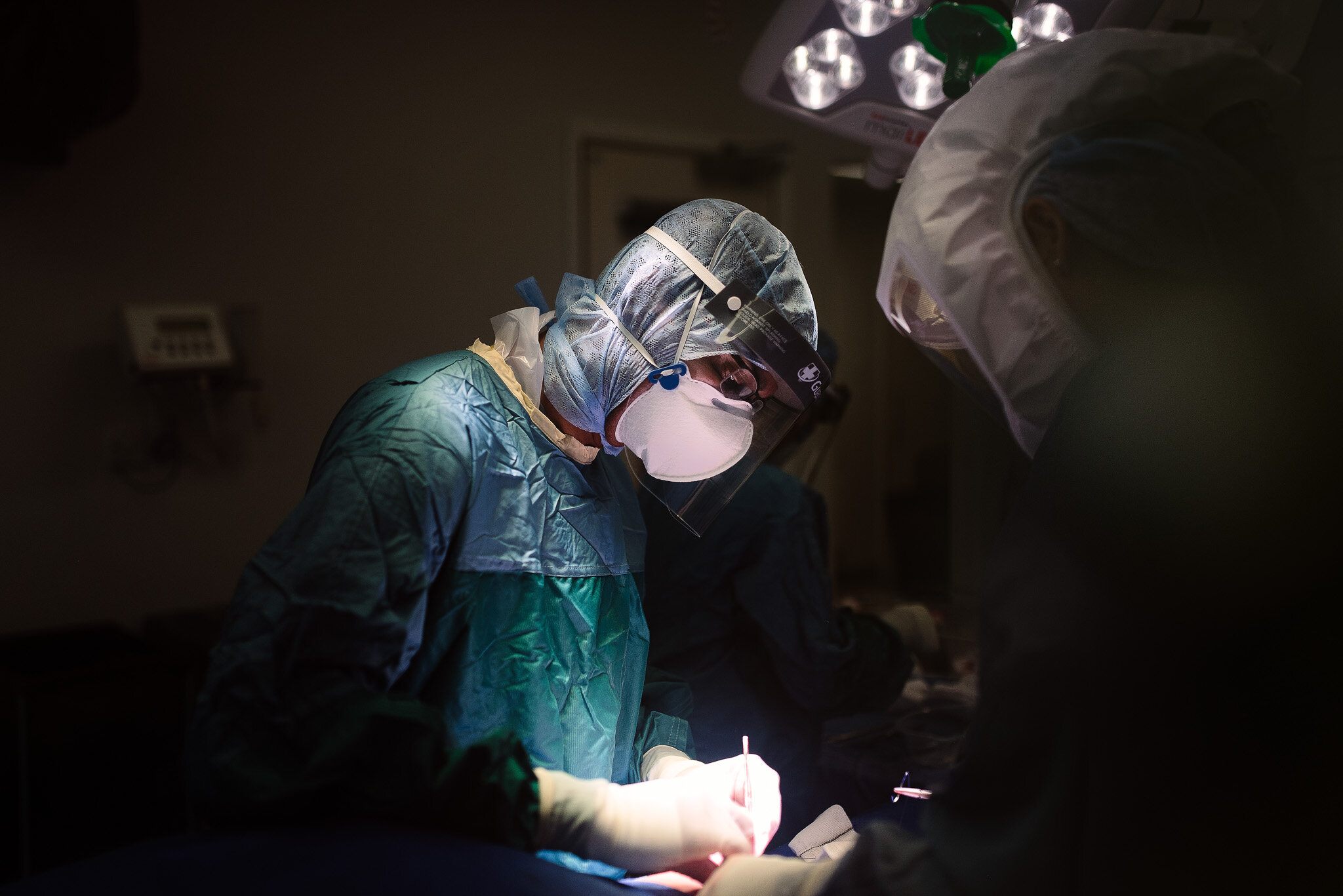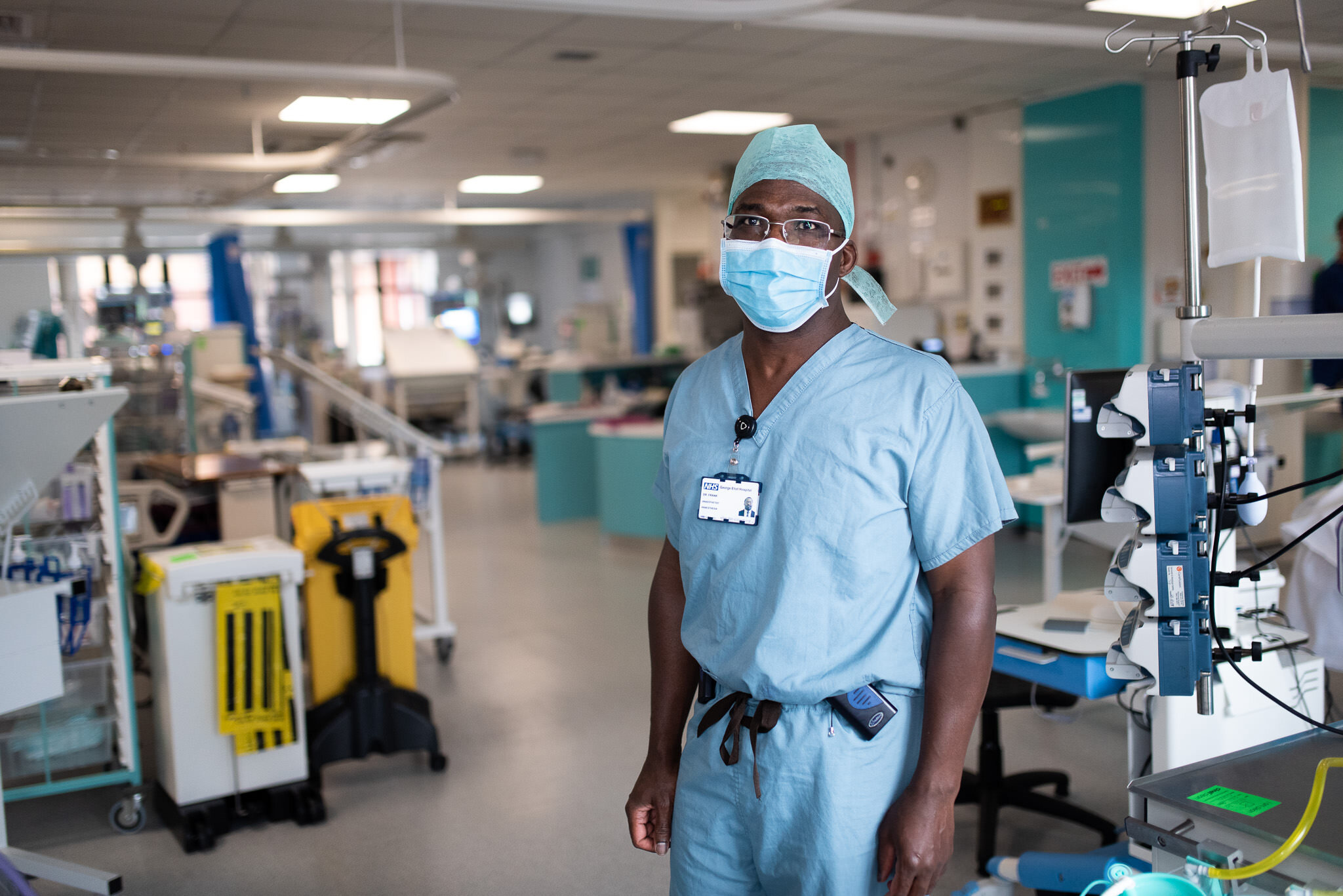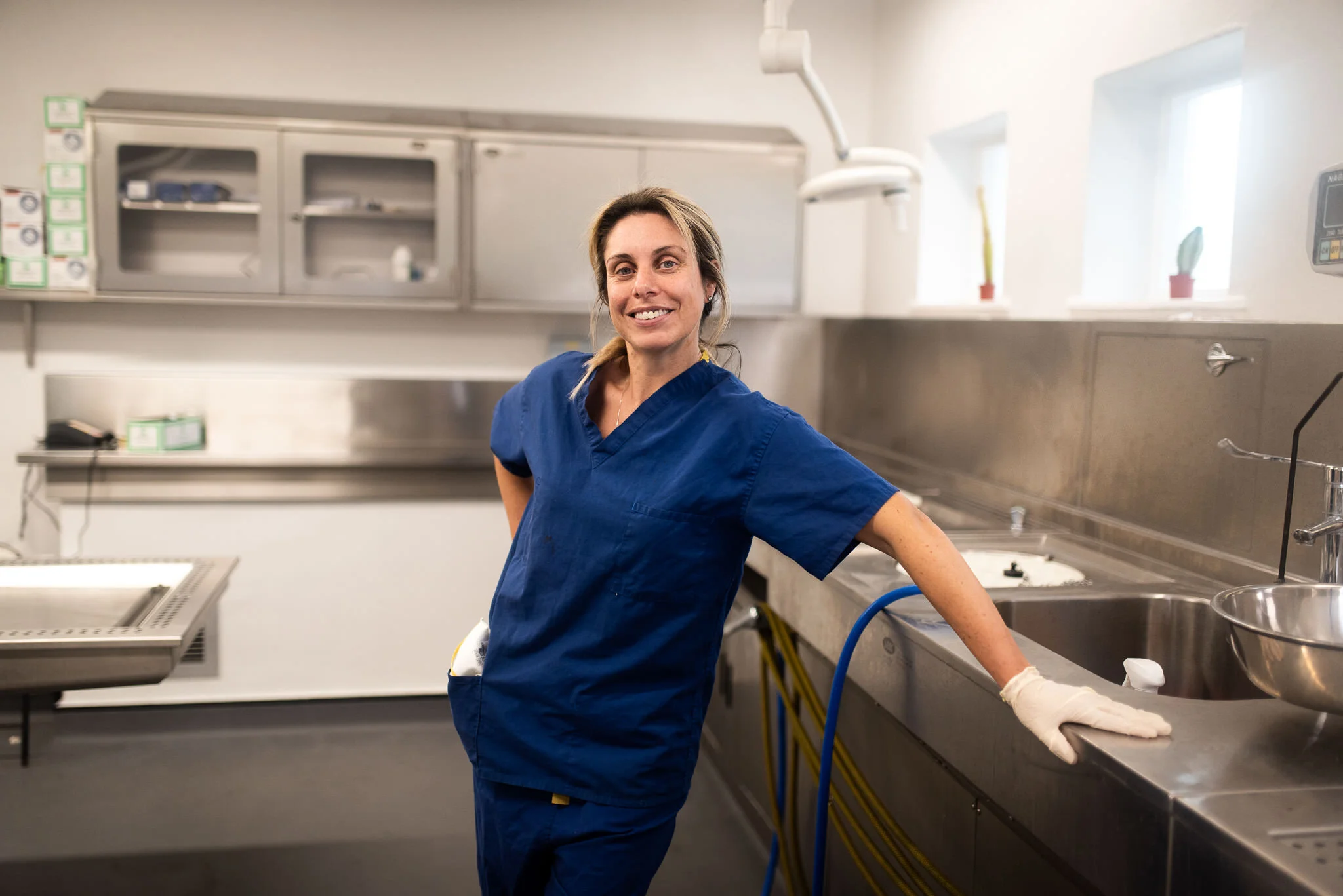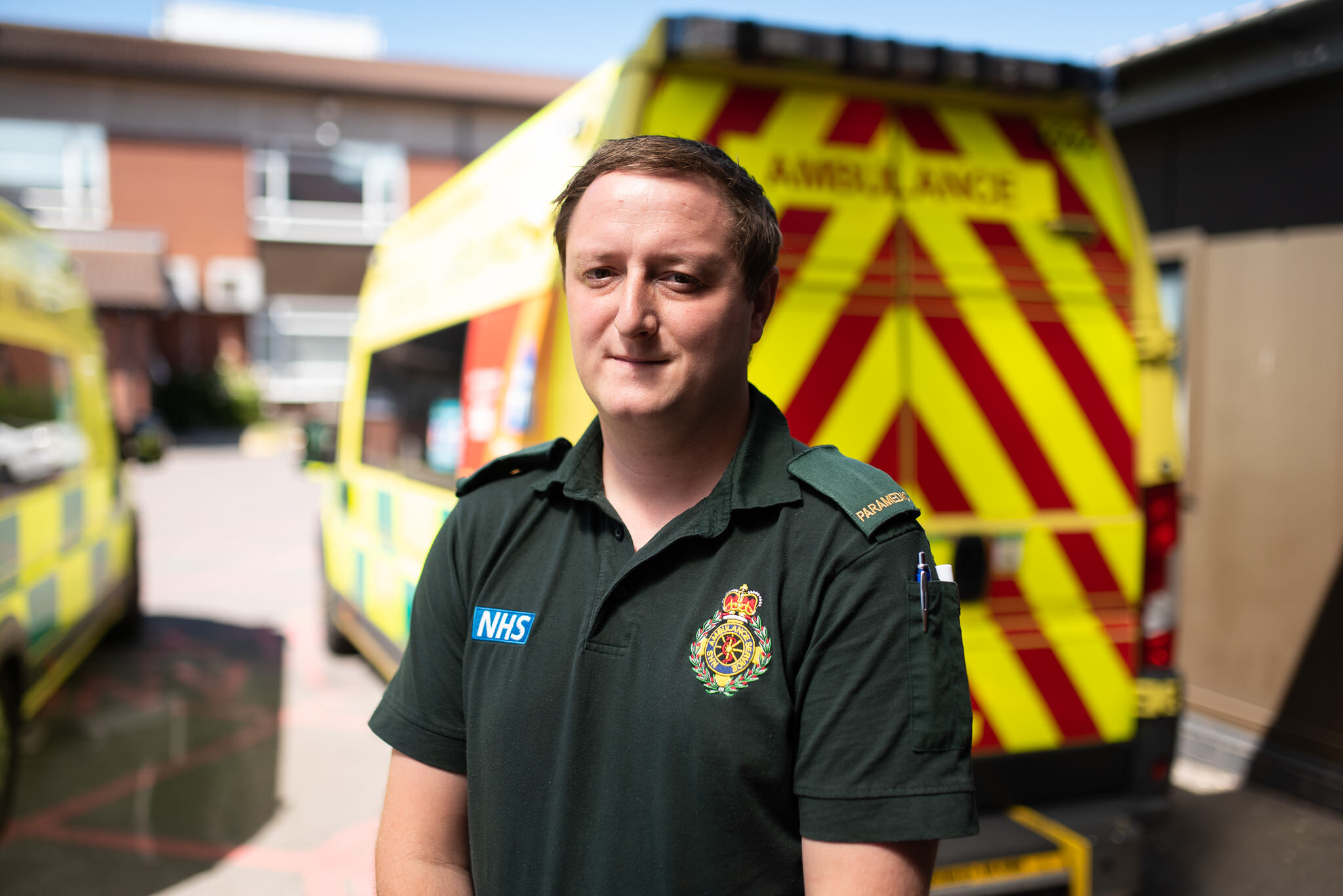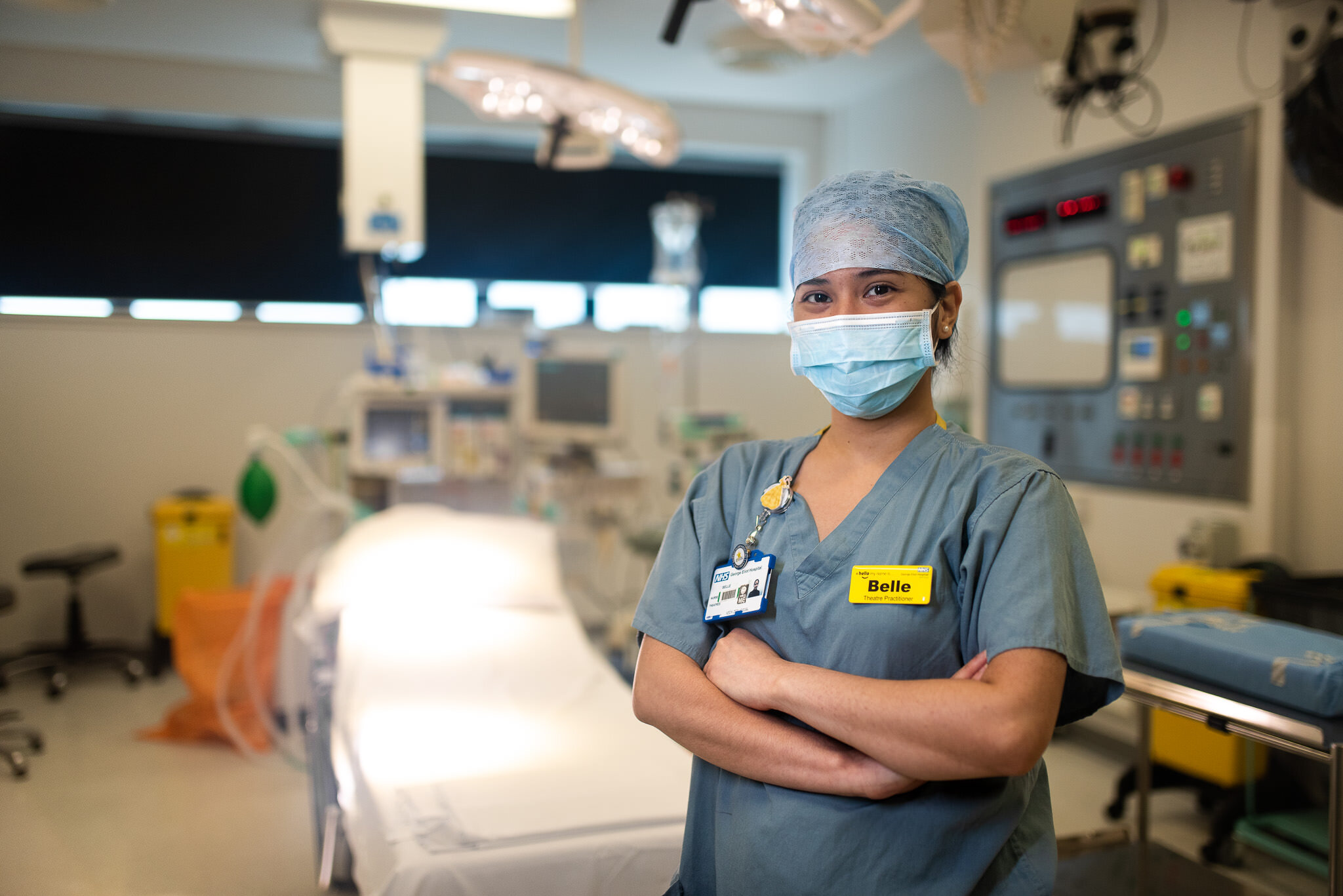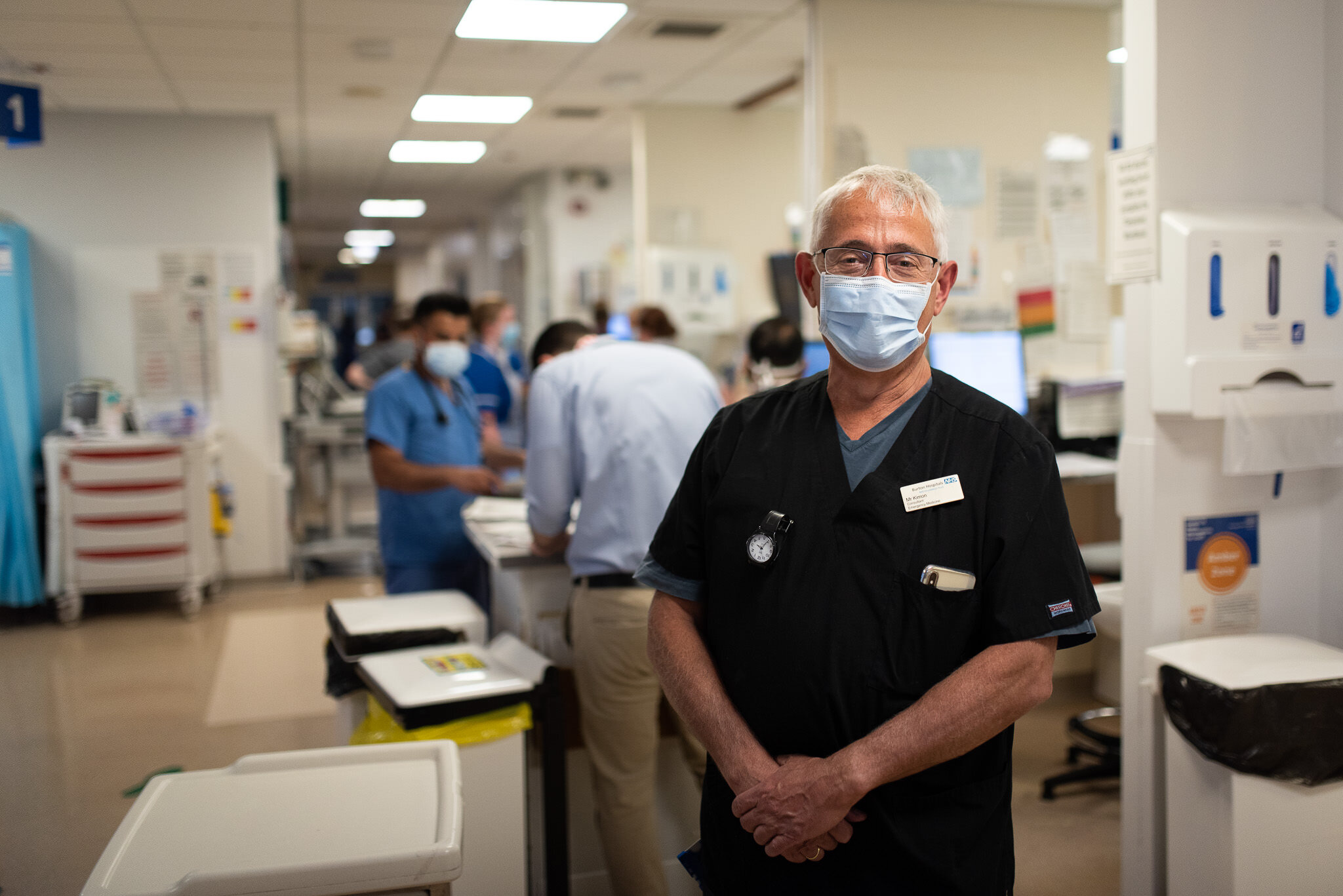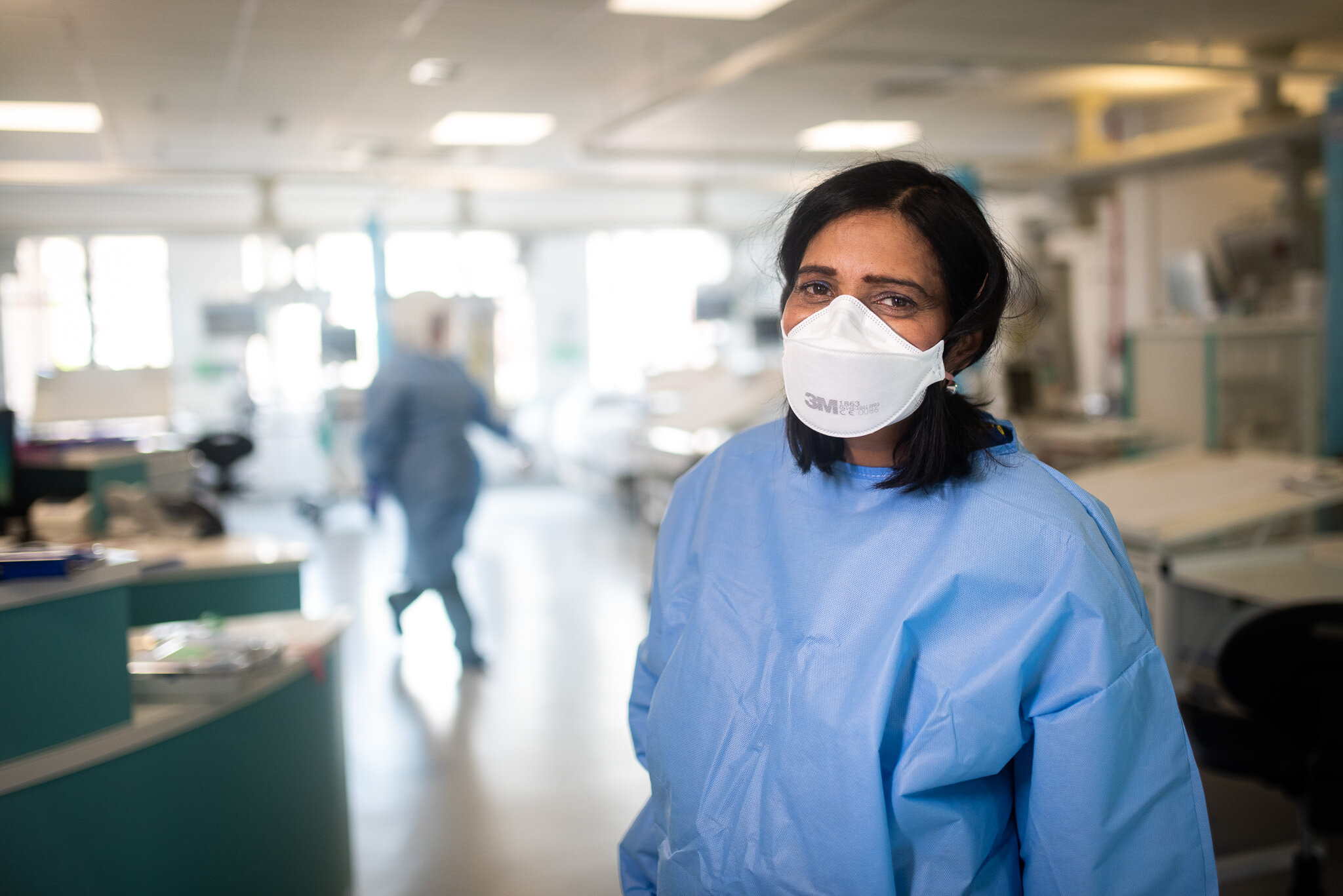
Humans of the Pandemic
Part A
Welcome to the first selection in Humans of the Pandemic.
During the first COVID-19 pandemic lockdown, medical student Matthew Thompson photographed portraits of 67 staff across NHS George Eliot Hospital. Inspired by what he saw while working on the respiratory ward, Matthew tried to meet and feature someone in every role that had changed, adapted or run at capacity to play an often hidden part in patient care. He soon discovered there were far more than he expected.
This is the first of three parts in this series, featuring 23 staff. Photographed between April and August 2020, each participant features two photos where possible and appropriate, according to their location and guidelines at the time the photo was taken: one with their PPE donned and one with their face revealed briefly. Some participants have been kind enough to share their thoughts and feelings about working during the “first wave” of the pandemic.
Abraham
Surgeon
Surgeon Abraham was worried during the pandemic as he adapted to telephone consultations. He hopes for “better preparedness in future pandemics.”
Catherine
Medical Director
“We welcomed Matt into the hospital and are really grateful for his professional support during the Covid pandemic. His and his colleagues’ efforts helped us get through a very challenging time. His portraits capture the unity, hard work and dedication of all our staff and act as a tribute to their efforts. I’m proud to work with all of them.”
Frank
Anaesthetist
“It was scary going in at times but once there you just got on with it” says Frank, an Anaesthetist in the Intensive Care Unit. He hopes the spirit of “we are all in it together” continues.
Georgette
Infection Prevention & Control Nurse
“Managing COVID as a junior infection control nurse was and still is an ongoing challenge." Georgette is "constantly learning and adapting to ensure patient safety across the trust." She feels the pandemic has massive influenced the NHS and her role from the "immense pressure placed on ICU and specialty services due to increased demand for COVID beds." Her Infection Prevention and Control team "worked above and beyond [to] ensure all staff were trained in how to don and doff PPE, [and] how to manage and place patients with COVID," while keeping their usual elective surgery and cancer services work going. Working across the hospital, she says "infection control really has had an insight into how well people come together in times like these.” The hospital went on to adopt a one way system and corridors were transformed with tape to help maintain appropriate distancing. Masks also became mandatory once inside the hospital.
Henrietta
Dialysis Nurse
Henrietta felt “very anxious and worried at times” due to the uncertainty, but glad to stay and help her patients. As a haemodialysis nurse, she has supported patients through transplant delays and cancellations, and feels “so proud to work for the NHS”.
Jennifer
Mortuary & Bereavement Manager
Jennifer hasn’t had the “chance to actually stop and think about myself” as she focuses on her role as Bereavement & Mortuary Manager. She feels she has “been pushed to our limit” but immensely proud that they maintained proper dignity for every patient, even during the overwhelming pressures of the April peak.
Kirsty
Medical Student - 1 month before graduating
As a final year medical student, Kirsty started supervised work early and felt “anxious about my family and the risk I might pose to them, but I feel like I’m helping and fulfilling the role I have trained for over 4 years. I love my job.” She feels the pandemic is “pushing the limits of how much staff are willing to risk in order to do their job. Team spirit is high though, it’s a supportive atmosphere.”
Lisa
COVID Emergency Dept. Nurse
Meera
Intensive Care Unit (ICU) Consultant Doctor & Clinical Director of Support Services
As ICU Consultant and Clinical Director of Support Services, Meera described a "sheer fear of the unknown" as patients became suddenly very ill with limited equipment, medicines and oxygen. She feels the NHS has been severely affected with a big burden of delayed non-essential work left to staff how have “worked extremely hard physically and mentally.” Breaking bad news over the phone and saying goodbyes over FaceTime have been extremely difficult. She hopes that more mental health support will be made available to staff who are dealing with the trauma of overwhelming patient bereavements and unwell colleagues.
Melissa
Occupational Therapist
Melissa feels bittersweet from the "sad and trying times on the wards [which have] made the team pull together and become stronger." As an occupational therapist, she said "part of my role is adapting the home environment in preparation for discharge which includes visiting the property. [As this could not happen], I had to be creative and work closely with patients’ family members to use technology to see the home and work together to make sure it was adapted appropriately." She is concerned that "patients who were holding off coming into hospital due to COVID are now slowly arriving very poorly, needing increased medical input." She hopes there is "increased community support for rehabilitation of patients affected by COVID.”
Michelle
Bereavement Administrator
Michelle felt "worried, anxious and a little stressed" in her role as Bereavement administrator. She can "no longer meet with grieving families who have lost their loved ones [so they] only speak on the phone." She feels the NHS has "become a family [but] been very stretched [and the] hours that staff have put in have been exceptional."
Michelle
Emergency Dept. Domestics Worker
Mikey
Theatres Operating Department Practitioner (ODP)
Mikey has "enjoyed the different challenges thrown [his] way." He had additional training to help relieve pressures in ICU and feels the pandemic has "created a real sense of unity between departments". He hopes "appreciation for our NHS continues."
Nicky
Midwifery Student
Midwifery student Nicky "opted in to work during the pandemic", which left her "worried for vulnerable people but glad the hospital is taking measures to protect patients and staff." She says "it's been hard with staff shortages and isolations, but there have been a lot of people coming forward to help." She hopes "NHS staff continue to get the recognition they deserve."
Nicola
Healthcare Support Worker
Healthcare Support Worker Nicola White found herself stressed, worried, anxious and tired, and particularly worried about the impact on her family. “Many of my colleagues will have dealt with many awful things during this time and I know it will have affected many peoples mental health.”
Peter
Procurement Category Manager
Peter Boulter, a Procurement Category Manager, is proud and grateful to the frontline clinical staff keeping us safe. He says: “I think the NHS has won some admirers during the pandemic. We have all seen the outpouring of appreciation from the general public. That said we have also seen a lot of strain put on the NHS to manage the pandemic.”
Rushabh
Pharmacist
As a pharmacist, Rushabh Shah would usually be moving from ward to ward seeing patients, something that was more restricted during the pandemic. “However, the workers have worked unimaginably hard, sacrificing their family time to do the extra shifts that need covering. They have been adapting daily to the changes in guidance and taking a risk to themselves to treat all patients, not just the doctors and nurses that directly treat patients but also the support staff and allied healthcare professionals.”
Sam
Undergraduate Medical Education & TEL Manager
Sam felt a "lack of control and uncertainty" as the pandemic disrupted her structured approach to developing teaching for medical and physician associate students. Once she accepted the rapidly changing situation, she "felt empowered to face whatever the next challenge was and channel creativity into remodelling our medical education programmes and supporting various trust projects." She believes "I'm not special, I'm still fulfilling my role but it just looks different." As half of the Technology Enhanced Learning Team, she supported staff to develop new learning methods including "interactive modules to replace face-to-face teaching." Her team "worked tirelessly [to bring withdrawn students] back as part of the workforce initiative, providing them with academic, clinical and pastoral support." She hopes the encouragement to innovate in medical education continues, while ensuring less digitally-literate users aren't left behind through feedback from volunteer patients. She also hopes the reconsideration of minor problems that led to lower A&E numbers during the summer will continue, especially as we approach the pressures of winter.
Sam
Cardiology Nurse
Scott
Paramedic
Tom
Medical Student - Second Year
Tom has "definitely felt better." As a healthcare assistant, which helps fund his medical studies, his role has "become more diverse, with more senior staff relying on [newly honed] clinical and personal skills to support patients more holistically." A&E staff are "not just trying to work out what [patients] are coming in with, but also trying to work out if they're safe to be there." He feels "NHS staff have been heralded as heroes and simultaneously treated with disdain" as weekly applause in solidarity contrasted with "government refusing to acknowledge the NHS funding gap." He hopes the "altruism continues".
Vijay
Biochemistry & Immunology Quality Lead
As the Biochemistry & Immunology Quality Lead, Vijay and her lab has rapidly adapted and implemented new testing capabilities. Despite increased workload and staffing pressures, she feels it has been "a really exciting time for laboratory services and pathology" as there is greater recognition for the role they play in diagnostics and patient care. "Staff have really worked hard to keep the service going and keep the patient at the heart of everything we do.”

